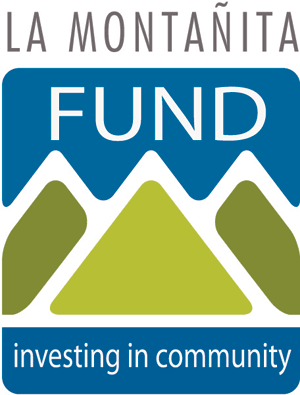La Montanita FUND: Capitalizing Growth

For the La Montañita Co-op Trade/Foodshed Initiative to succeed, New Mexico needed either individual or cooperatively networked farmers and ranchers who had reached a mid-size scale of production and were willing to sell the larger quantities needed by the Co-op Distribution Center (CDC), at wholesale prices. To help local farmers scale up, during the first few years the CDC made approximately $40,000 in “prepayment for product” loans to local producers.
In the fall of 2009, La Montañita Co-op was asked to host the first national Slow Money conference in Santa Fe (“Co-op Principles Meet Slow Money Principles”). At that event, after a presentation on our fledgling foodshed project, a number of co-op members asked how they could invest in the local food system. By this time, requests from producers for prepayment loans were becoming more than La Montañita was able and willing to manage. Recognizing that there was no vehicle for local investing to capitalize area food producers and build the regional food system, the La Montañita membership department facilitated the creation of the La Montañita Fund (LaM FUND) a grassroots investing and micro-lending project that is a wholly owned subsidiary of La Montañita Co-op.
A grant from a small, anonymous family foundation covered the $37,000 in legal fees necessary during the first two years, fashioning a program that met New Mexico Securities Division requirements as an intrastate exempt security while keeping the original cooperative vision. In order not to compete with scarce resources, La Montañita does not have its own nonprofit status, but partners with like-minded organizations that are willing to be our fiscal agents for projects supported by the LaM FUND.
Now in its third year, the LaM FUND is open to all co-op members interested in investing, is approved for a $200,000 total aggregate investment, and has raised $125,750 in investments. It has paid a 2.10 percent and a 1.67 percent return on investment during 2011 and 2012, respectively, and from 2011 through June of 2013 has loaned a total of $128,575 to 14 farm and food producers around the state, including providing the front money for USDA’s EQIP grant recipients. With an application that helps design the beginnings of a business plan, loans that range from $500 to $27,750 have been made to new farmers and experienced producers, for everything from refrigerated delivery trucks to herd expansion, seed supplies, irrigation, fencing, and other equipment. The New Mexico Educators Federal Credit Union, a longtime cooperative partner, administers the loans.
Since the LaM FUND’s inception, state-approved changes to the program include: allowing for investment choices of one, three, or five years for the longer loan repayment terms needed by farmers and ranchers; expanding investment enrollment periods from three months to six months each year; and allowing loans to non-food cooperative businesses in New Mexico. All LaM FUND documents are available at www.lamontanita.coop, and other cooperatives are welcome to use them in development of food system capitalization programs of their own. But others should check with legal counsel for specifics on their intrastate exemption requirements.
We also are pleased to be part of the National Advisory Board for the Food Hub Management Program. With no clear path to resilient regional food systems, and with 20 percent of food hubs organized as co-ops, it is of strategic importance to share information and experience. For more information on the Food Hub Management Program, contact Eric Deluca at [email protected].







